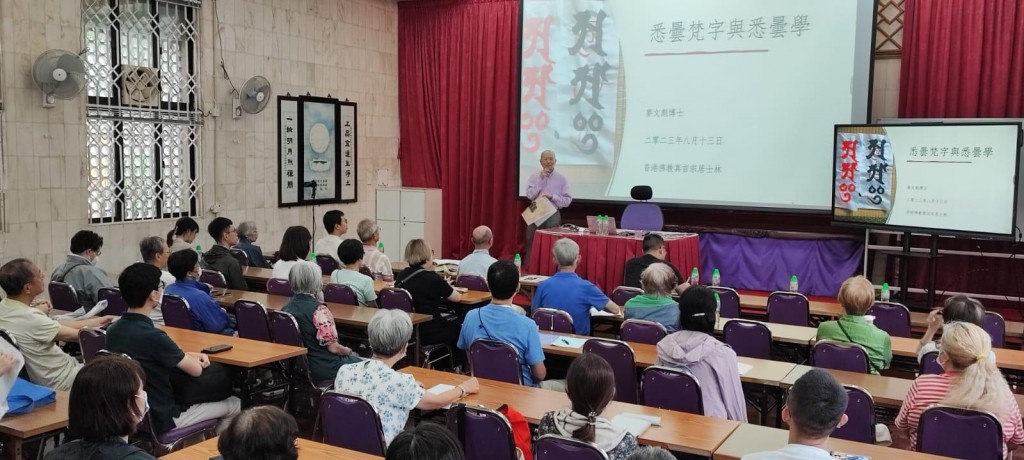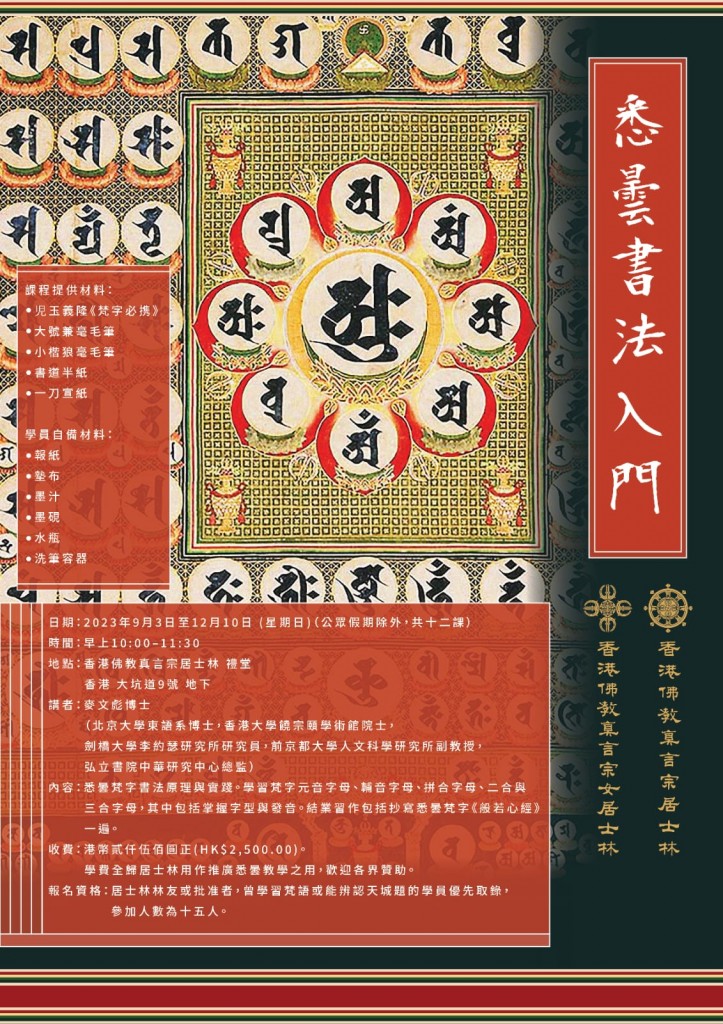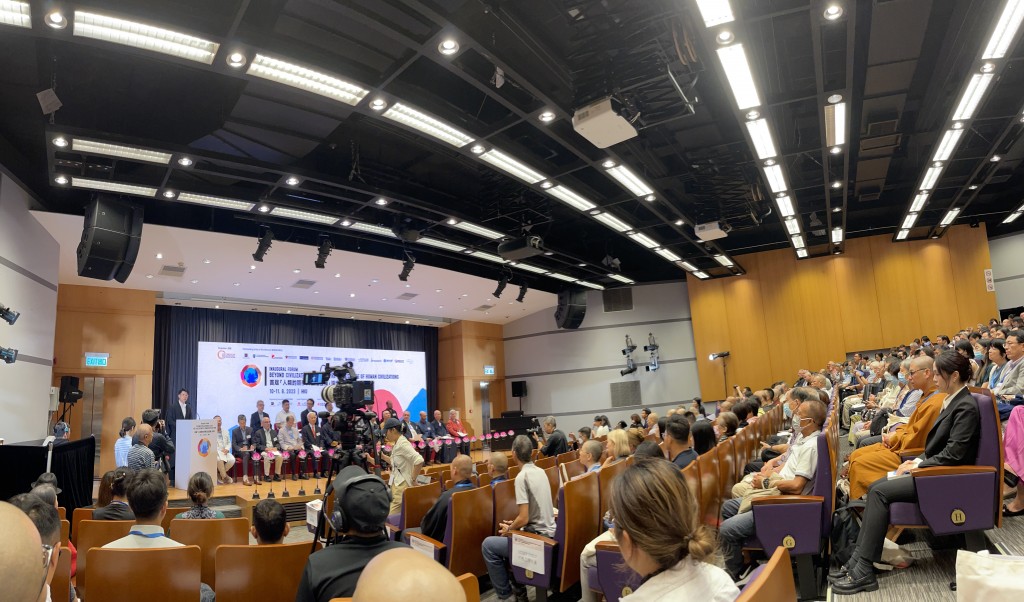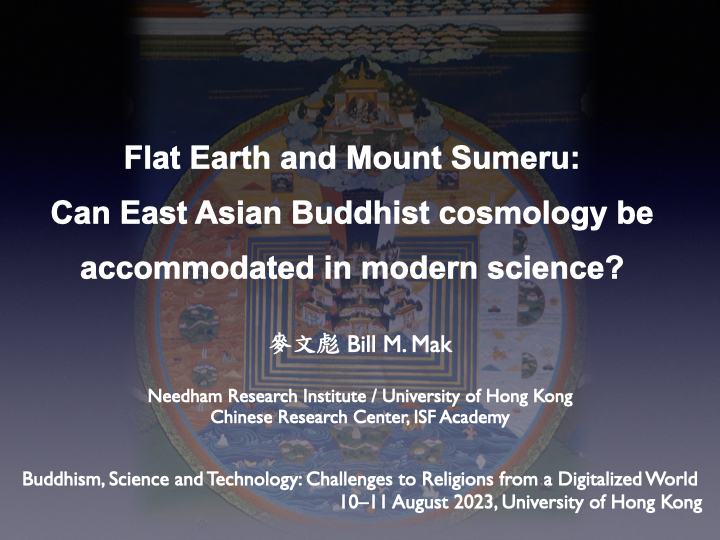Public lecture: “Siddham and Siddham Studies”
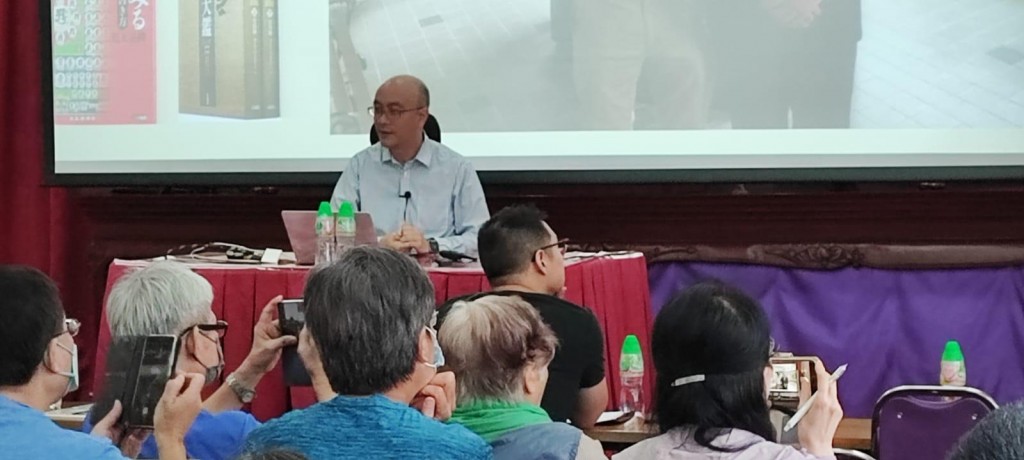
On August 13th, I was invited by the Hong Kong Mantra School for Lay Buddhists to deliver a public lecture, titled “Siddham and Siddham Studies”. Back in 2003, soon after I enrolled in Master of Buddhist Studies at HKU, I found out that Prof. Wang Bangwei was coming to Hong Kong from Peking University. Prof. Wang was the student of the eminent Chinese Indologist Ji Xianlin. I took the opportunity to take a class offered by Prof. Wang who was then a guest lecturer. He eventually supervised my M.A. dissertation on Siddham Studies, as well as later my PhD thesis at Peking University. In 2008, thanks to a scholarship from the Japanese Ministry of Education, I was able to pursue a second doctoral program in Kyoto University. While in Japan I studied Siddham calligraphy in my spare time under the masterful guidance of Prof. Giryu Kodama from Shuchiin University. Fast forward twenty years, and I am glad to return to Hong Kong and share my experiences in Sanskrit learning and Buddhist Sanskrit calligraphy in a lay Buddhist temple that has a fascinating history.

